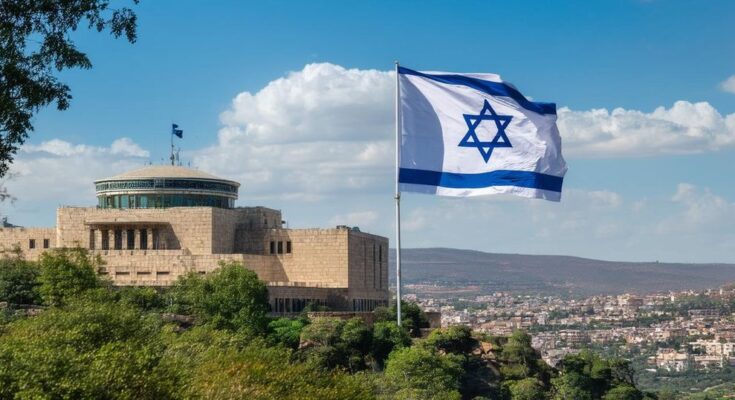Discussions are underway regarding the possible return of an Israeli embassy to Eswatini, a nation that has maintained diplomatic relations with Israel for over fifty years. As Israel faces mounting international criticism over its actions in Gaza, Eswatini is reportedly strengthening ties with Tel Aviv. The previous embassy in Eswatini was closed in 1994, and Israeli diplomatic affairs have been managed through South Africa. National officials have indicated that consultations on establishing a new mission are ongoing, although opposition voices express concerns about the implications of such a gesture.
There are emerging discussions concerning the potential return of an Israeli embassy to Eswatini, a small kingdom in Southern Africa that has maintained diplomatic relations with Israel for over fifty years. Anadolu Agency reports that as Israel encounters growing international criticism over its military actions in Gaza and Lebanon, Eswatini appears to strengthen its ties with Tel Aviv, potentially leading to a reinstatement of Israeli diplomatic presence in the capital, Mbabane, where the embassy was closed in 1994. Currently, Israeli diplomatic affairs with Eswatini are managed through South Africa, which maintains a tense relationship with Israel, particularly regarding the situation in Gaza. While local media has speculated about the relocation of the Israeli diplomatic mission, officials from both Israel and Eswatini have refrained from making official remarks on the matter. June 2023 statements from Newman Ntshangase, principal secretary at the Eswatini Foreign Ministry, indicated that discussions were ongoing at high levels. It is noteworthy that Eswatini’s monarch, King Mswati III, expressed that the country retains the sovereign right to establish diplomatic relations, asserting, “Eswatini has a sovereign right to choose, which comes into force without having to be passed or approved by other nations.” Conversely, opposition voices within Eswatini have raised concerns about the implications of such a diplomatic shift. Critics argue that closer ties with Israel may signify an endorsement of its actions in Gaza and could undermine democratic principles within Eswatini. Moreover, there is apprehension regarding the potential alienation of Eswatini from Arab nations, which have historically provided development assistance. As Eswatini navigates this complex diplomatic terrain, the outcome remains uncertain, with authorities committed to transparency as developments unfold. The political landscape surrounding this issue is intricate, reflecting wider tensions associated with regional allegiances and international human rights perspectives. The possibilities surrounding Israel’s potential diplomatic re-engagement with Eswatini encapsulate broader geopolitical dynamics and the challenges faced by smaller nations in maintaining diplomatic autonomy amid external pressures.
Eswatini, previously known as Swaziland, has had a long-standing diplomatic relationship with Israel, dating back over five decades. The kingdom’s previous Israeli embassy in Mbabane was closed in 1994, with Israeli affairs subsequently managed from South Africa. However, given the current geopolitical climate, marked by increasing tensions over Israel’s actions in Gaza and its strained relations with South Africa, discussions have emerged regarding the potential reinstatement of an Israeli diplomatic mission in Eswatini. The relationship between these nations poses significant implications not only for bilateral dynamics but also within the context of regional alliances and opposition voices within Eswatini itself.
The potential relocation of the Israeli embassy from South Africa to Eswatini highlights important considerations regarding international relations, national sovereignty, and the complexities of regional diplomacy. While Eswatini seems poised to foster closer ties with Israel amidst growing international isolation for the latter, this move raises concerns about public perceptions, democratic integrity, and the reaction of traditional allies in the Arab world. The current state of negotiations underscores the delicate balance Eswatini must maintain as it navigates these developments.
Original Source: www.middleeastmonitor.com




